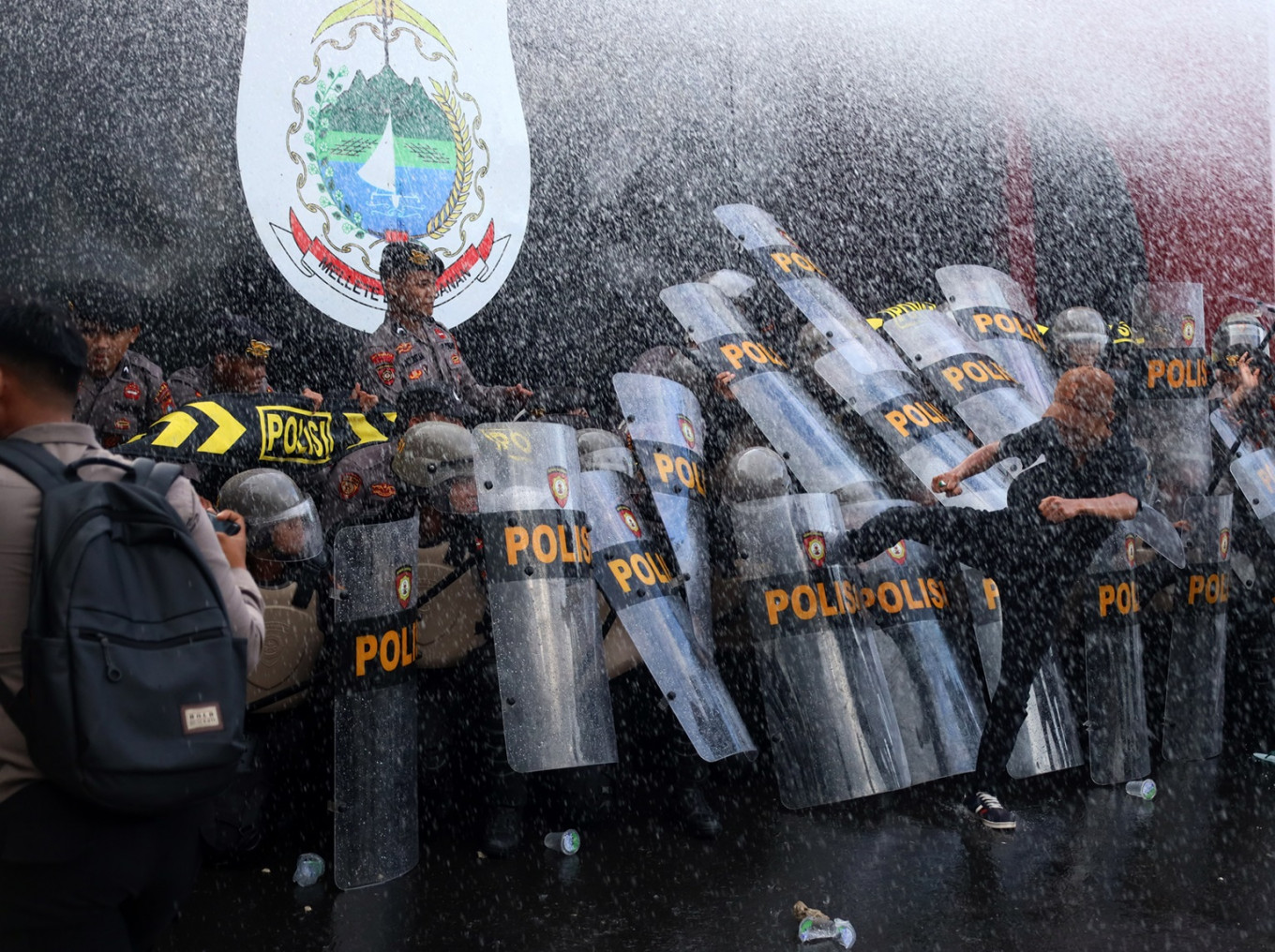Popular Reads
Top Results
Can't find what you're looking for?
View all search resultsPopular Reads
Top Results
Can't find what you're looking for?
View all search resultsHuman rights defenders show courage in a time of crisis
States must adopt a consistent approach to human rights and to recognize that human rights defenders are helping to guide us toward the SDGs.
Change text size
Gift Premium Articles
to Anyone
T
he Sustainable Development Goals (SDGs) were meant to bring an end to poverty, hunger and inequality. They were meant to create a future where everyone could live in dignity and where people no longer profited from the exploitation of others. They were meant to ensure that we could continue living on our planet, with the worst impacts of the climate crisis averted.
The 17 goals, agreed by all United Nations member states in a moment of optimistic consensus in 2015, set out a 15-year timeline to achieve these aims. Each state committed to do their part for the betterment of all as part of a shared effort. Yet with six years to go, only 16 percent of the goals’ targets are on track.
By failing to honor their commitments to the SDGs, governments are condemning future generations to endure the same endless cycle of poverty and marginalization. At a time of such crisis, states need all the help they can get.
Governments must show courage in this time of crisis and lead by example. Words and declarations are no substitute for concerted action based on respect for fundamental rights and the crucial role of human rights defenders.
There can be no solution without the protection and active participation of “human rights defenders”, as I outline in a report that I will present to the UN General Assembly today.
Look, for example, at the work of the civil society organization AdvocAid in Sierra Leone which highlights that poverty (SDG 1) is being perpetuated by the jailing of those accused of petty offenses such as loitering. Street traders, people engaged in sex work and prostitution and those already living in poverty, a majority of whom are women, are being further impoverished due to their imprisonment, which results in lost earnings and further hardship on their families who rely on them as breadwinners.
Or consider the activists in Clean Cape Fear, a grassroots collective of people who live along the Cape Fear River in North Carolina in the United States. For years, they have been chronically exposed to dangerous quantities of perfluoroalkyl and polyfluoroalkyl substances (PFAS) or “forever chemicals” released by a nearby manufacturing plant.
Through the sustained advocacy of the National PFAS Contamination Coalition, made up of local groups like Clean Cape Fear, these activists played a large role in pushing the government to issue a first-ever “national, legally enforceable drinking water standard to protect communities from exposure to harmfulper- and polyfluoroalkyl substances” in April of this year. In doing so, they brought the US one step closer to meeting SDG 6, namely clean water and sanitation.
But too often governments reject this type of assistance and instead deploy anti-terror legislation or bogus “tax evasion” or similar charges against human rights defenders because they work outside of a government-approved model. This is despite the fact that their work, knowingly or unknowingly, is speaking directly to the SDGs, those same SDGs that their government endorses.
Governments are attacking the very people who are helping them realize their SDG obligations. In June, Thi To Nhien Ngo, a Vietnamese renewable energy expert, was jailed for providing independent expertise on energy policy, in line with SDG 7 on affordable and clean energy. She is one of a number of figures concerned with the climate crisis to have been imprisoned in recent years in Vietnam, against a backdrop of ever improving relations between the Southeast Asian state and the US and the European Union.
I urge UN member states to leave any preconceptions about human rights defenders at the door and to examine whether their specific actions do indeed bring us closer to the future envisioned by the SDGs. I urge states to adopt a consistent approach to human rights and to recognize that human rights defenders are helping to guide us toward the goals, no matter where they do their work.
This is as true of activists in the United Kingdom drawing attention to the extent of the climate crisis (SDG 13) through inconvenient but peaceful protest as it is for women demonstrators in Iran and Afghanistan boldly calling for gender equality (SDG 5).
A consistent approach to human rights means supporting the right of teachers to provide a quality education to their students (SDG 4) and the right not to be bombed from the sky, regardless of whether those attacks occur in Gaza or in Myanmar. It means supporting the right of people to peacefully organize, advocate and protest, whether it be in Berlin or Beijing, Moscow or Manama.
A consistent approach to human rights may necessitate both a change in policy and a change in mindset. Given every UN member state has committed to achieving the SDGs, and human rights are rooted in the goals, that change must be worth making. Human rights defenders are SDG defenders and every state can do more to protect them.
Doing so will help keep the goals alive, rather than their fading away as an irrelevance of UN history. Now is the time for states to show courage and leadership in changing their approach, for, in the words of Leo Tolstoy, “Everyone thinks of changing the world, but no one thinks of changing himself.”
***
The writer is the United Nations special rapporteur on the situation of human rights defenders.











